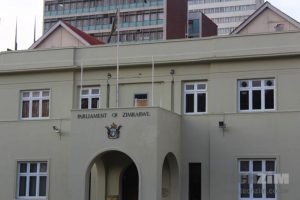
The present Parliamentary recess began on 18th March, when both Houses resolved to adjourn until Tuesday 5th May after the President’s announcement of special measures to be taken against the COVID-19 pandemic.
The extended National Lockdown is due to expire at midnight on Sunday 3rd May. But the Government has already announced that the opening of the second school term, due in normal times on 5th May, has been indefinitely postponed. So a further extension seems on the cards, albeit it with further modifications in the interests of the economy. This means that it may be unlikely that Parliament will resume its sittings on May 5th.
Committee on Standing Rules and Orders [CSRO] to Decide on Way Forward
Parliament’s Committee on Standing Rules and Orders [CSRO] will meet tomorrow, Thursday 30th April, to determine how to handle the fact that, strictly speaking, the recess should end with sittings of both Houses next Tuesday afternoon.
Section 181 of the Constitution makes the CSRO the most important Parliamentary committee. Under this section the CSRO has the power to consider and decide “all matters concerning Parliament”. It is chaired by the Speaker of the National Assembly or, in the absence of the Speaker, the President of the Senate. Its 25 members include several Ministers ex officio and its other members must be appointed or selected so that the CSRO reflects as nearly as possible the political and gender composition of the combined Houses of Parliament. It follows that it is dominated by the governing party, but other parties have a voice. The quorum is 13. [Comment: presumably MPs presently in Harare will be contacted first to save too much travel between provinces, and when they meet social distancing will be observed].
What will the CSRO decide?
Section 146 of the Constitution leaves it to each House of Parliament to determine the time and duration of its own sittings and its period of recess – as long as no more than 180 days is allowed to elapse between the sittings of a particular House.
Both Houses decided on 18th April that they would sit again on Tuesday 5th May. So meetings of some sort seem mandatory. But what sort of meeting would be satisfactory?
Virtual meetings?
As we understand the position, although Parliament has taken initial steps towards being paperless, existing resources do not permit the “virtual” or online meetings resorted to by some legislatures in other countries..
Reduced numbers?
Available space in both National Assembly and Senate chambers does not permit physical distancing if full attendance is desired. Full attendance would also require travel by MPs from constituencies distant from Harare. But full – or even normal – attendance may not be necessary, depending on what the CSRO decides on what, if any, business any sittings should tackle.
Staff in Parliament have suggested that reduced attendance may be the way to go – as long as it is representative of political and gender composition of the House concerned. The Senate quorum is 26. The National Assembly quorum is 70. Quorate sittings that are sufficiently representative should be achievable, even in the limited space available in the two chambers. The party whips in consultation with each other should be able to organise attendance in sufficient numbers to enable representative sittings of both Houses to take place either at Parliament or at another, more spacious, venue. The CRSO may even decide that in the present exceptional circumstance rules on quorums could be suspended provided both parties agree. [Note: the quorums are not specified in the Constitution, they are set by Parliament’s Standing Orders, which also provide for their suspension.]
Nature of business?
MPs are probably bursting to put questions to Ministers about the Government’s handling of the COVID-19 pandemic and its plans for the way ahead. But the CSRO’s decision on the business to be conducted next Tuesday is likely to prove the last word. It may be that the only business conducted will be to decide that Parliament adjourns again to a future date.
Veritas makes every effort to ensure reliable information, but cannot take legal responsibility for information supplied.
Post published in: Featured

